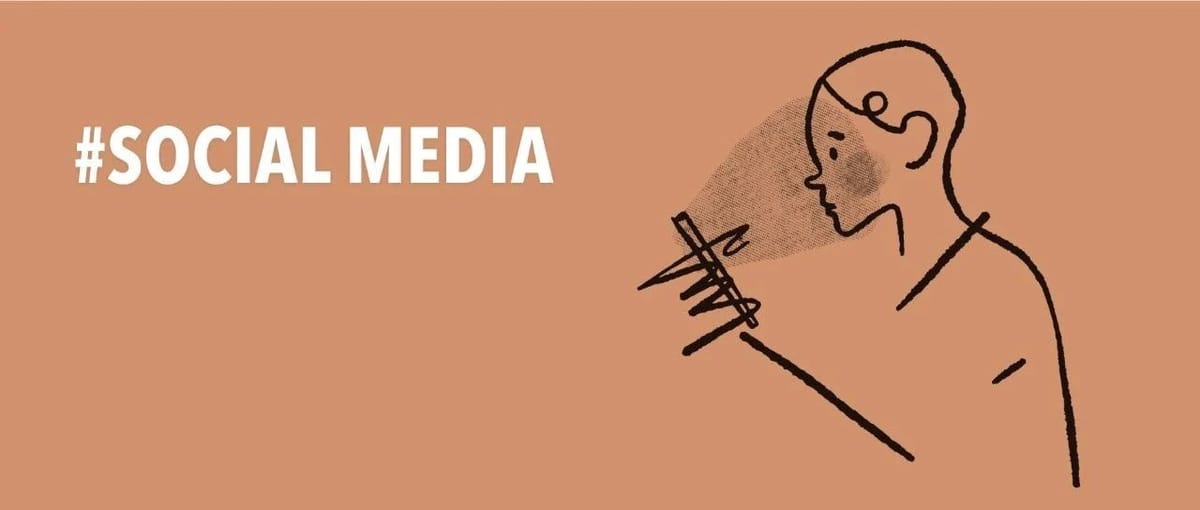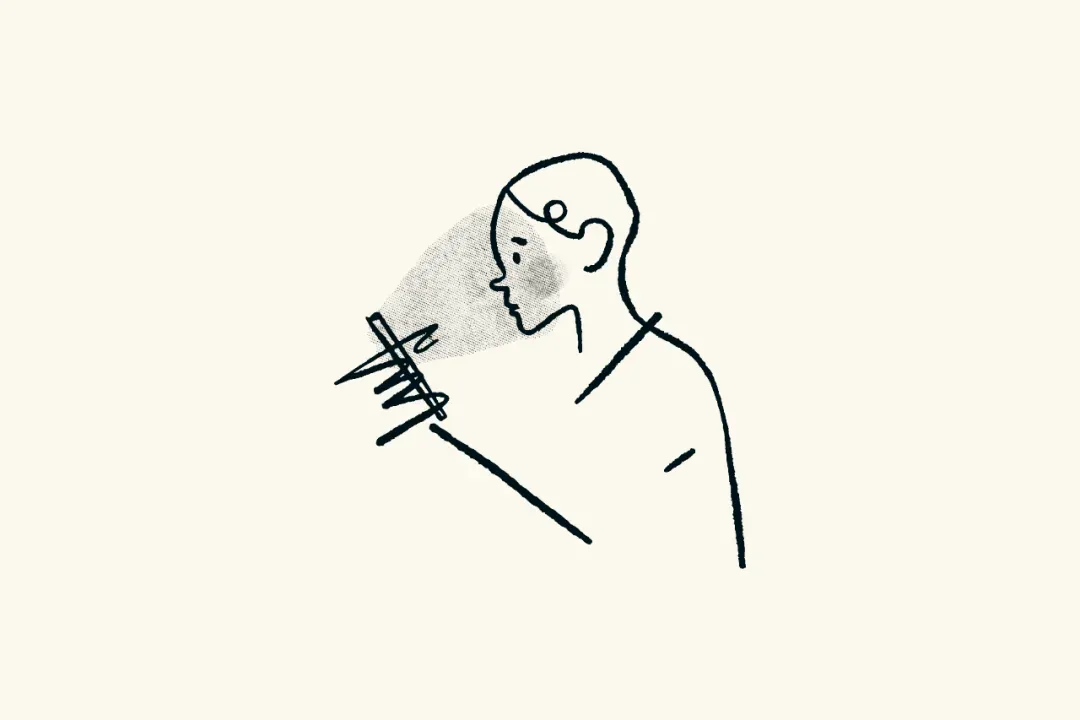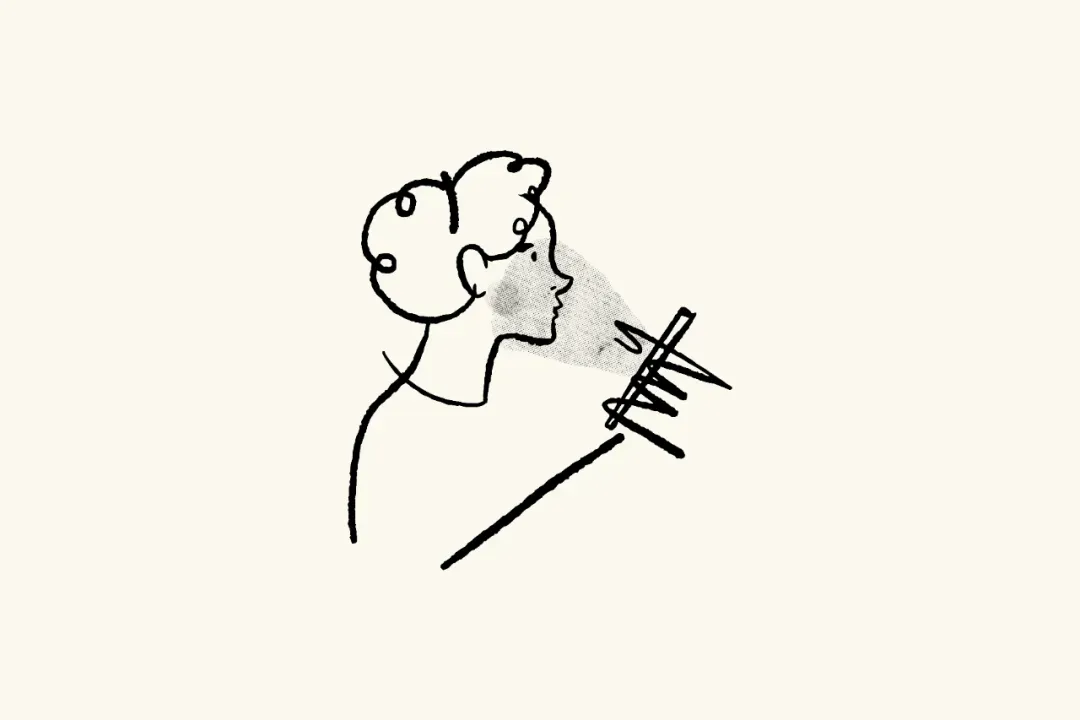Would the World Be Better Without Social Media? | Mindful Reading (02)

I wish social media never existed.
This was the candid response given by F1 World Champion Max Verstappen when a journalist asked for his thoughts on the Netflix F1 documentary. A silence fell over the room. He looked around and added, "Freedom of speech, right?"
This sentiment isn't an isolated case in the F1 paddock. Compared to Verstappen's reluctance for deep involvement, another four-time world champion, Sebastian Vettel, is explicitly against social media. His very first Instagram post was his retirement announcement. Similarly, Vettel's friend, Kimi Räikkönen, has made his signature the terse, minimalist quotes and often-perfunctory attitude he displays in media interviews. As public figures, they arguably benefit from the global reach of social media to build their fame, but none of them seem grateful, choosing instead to say "no" to it.
Is it easier for the average person to navigate their choices and attitudes toward social media? Would our world be better if social media had never been invented?
Life Off the Feed

In the previous article, I introduced "Big Reading" as a broad concept that certainly includes social media as a medium, but that doesn't mean I hold a positive view of it. On the contrary, I enjoy criticizing social media—I even once thought a person's type could be categorized by their attitude towards it.
I have my own story to tell, which I posted on X: a three-year-plus period of not using social media. The long-term, excessive information consumption made me feel suddenly burnt out at a certain point in 2021. In my own field, content created by various opinion leaders and media made me uneasy. I started to wonder about the corners of the internet I wasn't familiar with—when misinformation appeared there, how could I even know? How could I take responsibility for every word I said online? A destructive form of perfectionism prevented me from continuing to use social media. Gradually, I simply forgot to open my accounts, rarely checked trending topics or news. This state continued for three years without me consciously planning it.
I found myself with significantly more personal time. I'd ride my bike to work early, and read outdoors nearby. The quality of time spent with family improved; there were no distracting notifications to pull me out of the present moment, and my phone could often stay in another room. I even found enjoyment in the "trivial" things I used to consider a waste of time and became more accepting of simply doing nothing sometimes. The deep satisfaction from the world outside the screen, like fresh oxygen, gradually restored my vitality and rationality.
Of course, there were challenges. For the first time in my life, I felt like I was out of the loop, not "cool." When I had to stay silent on certain topics, friends would joke, "How do you not know about that?" Then came the struggle with my own identity. If I occasionally posted on my private social feed, people might mistakenly assume that 1% of sharing represented 99% of my life, even though that wasn't my intention.
The line between our online persona and our authentic self is blurring. Every story seems to need to conform to a certain image or cater to audience expectations. For example, I noticed that people in the same professional group exhibit strikingly similar traits online, but when you talk to them face-to-face, those traits aren't nearly as prominent. Is this a result of internet culture shaping us, or is it a shared unspoken consensus developed by people in the same line of work?
Yet, abandoning this online identity feels like disappearing or even a sort of "death" in the digital world. Events where people are forcibly stripped of their online presence have already shown us this side of things.
Social media is a distorted mirror. If you believe the image in the mirror is the truth, you might go to great lengths to protect it, even changing yourself to fit that reflection. Conversely, the more sincerely we express ourselves, the more likely we are to deviate from social media's reward mechanisms, making it hard to be seen.
The feeling of Fear of Missing Out (FOMO) happens not only when actively using social media; it continued to subtly influence me even during the days I didn't open the apps, no matter how much I intellectually denied it.
Through this not-entirely-successful experience, I want to show the possibility of choosing not to use social media. Social media is so powerful; it is the dominant contemporary information medium, creating an ecosystem that makes those who stay away from it "off-track," even compelling them to write about the experience and warily look around to assert, "Freedom of speech, right?"
If I had a choice, I would choose a world without social media. But we no longer have that choice; we can't go back. Oh, and by the way, Vettel, who only registered for Instagram upon retiring, has since posted over four hundred times.
Minimalism Isn't Necessarily the Cure
Since social media is ubiquitous, let's discuss potential reading strategies.
The first easy-to-think-of method is information minimalism—focusing only on truly important information. But for every day you use social media, it has a way of constantly reminding you every time you open it: What to do when your child won't do homework? How to change your destiny by sleeping an hour earlier? How to double your income using ChatGPT? How to recognize your dog's emotional state? ... It knows you better than you know yourself; this is not a joke.
Minimalism is the inverse of FOMO, but it's not a tool to fight that fear; sometimes, it even strengthens other negative emotions. I suspect that if you practice an information minimalist approach and rarely suffer from the fear of missing out, doubt, or loneliness as a result, then minimalism is right for you. Otherwise, you'll have to accept the struggle. Practices that go against human nature are ultimately counteracted by our basic instincts.
The image of a chair in an empty room, where the owner's mind is as calm as if meditating in that space, is tempting. Like all other methods that are easy to guide and practice, minimalism can easily become a hot goal, striving to change all your habits in a short time. Minimalism is a methodology, not an outcome.
I've also shared my own practice of information minimalism, but that was focused on information management methods and the mindset for using tools, not the "decluttering" of the information itself. Excessive information filtering can also lead to cognitive bias, and I was one of the victims during those three years. The modern information environment is over-engineered; if you don't pay enough attention, it can affect your decisions. On a smaller scale, even missing a few coupons these days can make you spend a lot more money (but that's not your fault).
On the tool side, people who lived through the boom of Todo apps deeply understand this feeling: we obsessively tweak various Todo tools to manage our basic daily tasks, feeling self-satisfied. But when work truly gets busy and fragmented, the powerful tools seem to fail... We were ready for the big project when there wasn't one, and when the big project arrives, we realize we don't know how to use the tools. It's the same with minimalist tools—it's not that the tools are bad, but that everything is first and foremost about "the person".
Minimalism is an elitist lifestyle. Without matching cognitive abilities and social capital, minimalism may not be suitable. However, from the perspective of social media, watching less is still better than watching more, most of the time.
Don't Only Eat McDonald's
Social media isn't the root of all problems, but over-relying on it as an information source is a major issue. Of course, we can eat McDonald's, but if we only eat McDonald's for every meal, health problems aren't far behind. This is the core problem with social media: it has become the "information main course" for many people.
Some content is inherently unsuitable for social media presentation, yet we often enjoy reading it. This is the immediate gratification of completing something that requires no responsibility but feels satisfying. No need to be responsible for the correctness of the opinion, no need to be responsible for the source of the information, no need to be responsible for the action after reading... Why is "taking responsibility for content" so important? Just as food affects health, information shapes cognition, cognition influences decisions, and decisions determine how you live your life. No one should surrender the decision-making power over their own life.
Health supplements often sell better through video live streams than through scientific white papers. Parenting knowledge spreads more easily through short videos and online courses than through cognitive science books. The fuller picture of a topic, which takes more time to understand, is less likely to provide immediate emotional satisfaction. Fragmented information makes us ignore the differences between individuals, our own unique needs, and the growth patterns of children with different characteristics, ultimately leading our decisions astray from our goals.
But what if healthy food doesn't taste good? —This might be a misconception. If you could only choose between well-cooked chicken soup and fried chicken wings as your main food for the next month, which would you choose? Healthy food is just more expensive. Healthy information is similar in this regard; you need to invest more time and money. Social media, on the other hand, is always "free" and open to you.
Is it true that acquiring enough different pieces of information will piece together the complete truth? Eating many different kinds of unhealthy food will not balance your nutrition intake. Even piecing together "what you think is the truth" does not equate to building knowledge.
The crucial thing is to find authentic, first-hand information that isn't rewarded by the algorithm, seek understanding, and not be emotionally manipulated. "Seeking understanding" is one of the goals of reading. "Not being emotionally manipulated" is the theme of our mindful reading series.
If there's one healthy "main course" suitable for everyone, I'd certainly recommend books. The benefits of books have been discussed endlessly, but I want to share the unique feeling I get from reading them. Long periods of scrolling on social media usually result in emotional exhaustion. It's not always unpleasant; on the contrary, it's often very happy or even exciting, but the subsequent sense of loss is hard to avoid. Reading books, however, is a rich spiritual experience that often leaves me feeling mentally refreshed and my perspective renewed—the kind of fulfillment you get from eating a delicious, nutritious meal without the blood sugar spike and subsequent fatigue.
If you can summarize a book's main point in a few simple sentences, it's like seeing through the pages to the essence and truth of the matter. But on social media, most content doesn't require brainpower; simple repetition suffices. Social media encourages the results of thinking rather than the process of thinking. The results are also more likely to create authority and worship because "I know something you don't." If I only tell you what you want to know, you will naturally feel a bit more reverence for "opinion leaders."
Under this worship of authority, people imitate the actions and even the taste of others in the same circle, making those things part of themselves. Social media magnifies this trait, causing users to uncritically fall into others' narratives to gain a sense of security. This security is a shelter, but also a chronic poison that prevents people from living authentically.
You might want to pause for five minutes and think about how books are different in this regard, and why. Note the difference in your emotional state after you put down your phone versus when you put down a book. Don't take my word for it; trust your own body's feelings.
Three Social Media Reading Strategies
My goal for mindful reading on social media is to let activities that nourish and enrich the mind gain the upper hand, making the instinctive pursuit of information "fast food" less appealing. Like other things in life, this change isn't easy; it requires time and patience. There's no fixed standard of "you must do this to succeed." As long as you take conscious action, you can start on a new path today.

I believe the three main strategies that will help you achieve this goal are: Awareness, Reframing, and Creation.
Awareness: What Am I Looking At?
Holding different beliefs leads to different actions, and actions eventually reinforce those beliefs, ultimately changing a person. A person on a keto diet, soon after cutting out carbs, no longer considers them delicious or craves them. A vegetarian no longer finds meat appealing. These people eventually don't need "self-control;" these beliefs have become a part of them, naturally driving all their choices.
We need to establish our own attitude and belief system toward information, discerning its intent. For example, you can ask yourself these questions:
- Do you believe this content is being shared out of the creator's genuine desire to share the truth, or is it just a way for them to make an income?
- Why was this content created? Is it because the topic is broadly popular, or because it's rare and worth sharing?
- Why do I agree with this view? Is it because of my past experiences, or because it genuinely opened up a new way of thinking?
- Why do I disagree with this view? Is it because I already hold a contrary belief, or because I think there's a factual error?
- Would I have the same emotional reaction if the author were saying this to me face-to-face in real life?
- How did the author themselves likely form this belief—through experience, reading, or imitation?
- If this content appeared in a book or on a different platform, how might the comments differ?
In a less-than-healthy information environment, these questions are worth consciously practicing until they become intuitive. Sounds obvious? But as soon as a headline hits a nerve, we can still lose our judgment. How many times have you bought something you didn't need late at night? How many times have you casually repeated someone else's statement that you don't deep down agree with?
I believe a more positive attitude toward social media should be closer to how it was used when it first emerged—more classic, perhaps even less "diverse." Treat social media as a playground for finding inspiration and sparking creativity. You can now enrich your "inspiration library" on any platform, but don't obsess over quantity; always feel satisfied with what you have.
Reframing: Give Information Space
The design intent of social networks is not to spread profound insights but to leverage emotions. A nicer term for this is "user experience." If direct emotional confrontation is difficult, we can use tools to directly change the medium of information consumption, thereby reducing the influence of these carefully engineered platforms.
Use more general tools—this could be a reading tool like Cubox, a collection tool, a "read it later" app, Notion notes, or a local web archive... If all of those are too much, use the platform's own tools, like the simplest one: adding content to a favorites list or marking it to watch later. Its influence changes compared to when it appears in your feed. You are no longer anxiously scrolling to the next item; you are no longer instantly sad or instantly happy; you no longer need immediate gratification. You've moved from unconscious to conscious.
Don't worry too much about collecting things and not looking at them. Content that feels absolutely necessary to see now may turn out to be irrelevant later, and that's not necessarily a bad thing. At least we've made a protest through our actions: I will give information patience, time, and space. This is precisely what social media doesn't want you to do.
Create a space that allows you, in a suitable state, to watch an in-depth video podcast interview. The experience that information gives us in this way is profoundly different from a clip truncated on a short video platform. Any piece of text can be distorted when taken out of context. The distortion isn't your fault; it's the platform's and the creator's purpose, as that's what causes emotional fluctuation and feeds the algorithm. Don't let them use you.
Continue to view social media as a playground. If you discover content that interests you, tell yourself that it's the "preface" to an unexcavated book, guiding you to leave the playground shortly and go elsewhere to read properly.
Creation: Express Yourself Through Action
Beyond space, we can choose our own reading code of conduct. Who says reading social media can't involve taking notes, just like reading a book? View the flowing information stream as a book that's updating in real time. Combined with the tool usage mentioned above, you can make annotations, take notes, and synthesize your own knowledge within a single tool or across multiple tools.
Connect with people, not just information. If you're interested in an author, use a private message instead of a public comment; if you comment, don't just "like." Not all comments contribute; many are noise. The platform loves noise, and readers also enjoy noise. Don't constantly be a noise creator.
Share content in a way that doesn't carry the platform's emotional baggage. Share deeply; use sharing to drive your own thinking and to curate information into your own observations. Be like a lighting designer, using your passion to shine a spotlight on the information's hidden corners, guiding your audience's attention. Transform simply "seeing" a piece of content into "having an opinion" about it, and based on that, delve into discussion, debate, and develop your own taste. For content you have no opinion on, let it go; treat it as if it never appeared.
For example, when everyone focuses on the "How" in an article like How to Do Great Work, you might be inspired by something else you recently read to focus on the flip side of "Great Work": How to avoid what is currently considered a 'great work' from becoming a disaster for all humanity in the future? Don't let go of that inspiration. You might even contribute to saving the world.
When sharing, provide insight. And when providing insight, you don't need to start with the qualifier, "Just a thought, might be wrong." All thoughts might be wrong; acknowledge that reality and embrace our human characteristic of making mistakes. Your view might be questioned, criticized, or ignored, but this is social media, and this is human nature. Keep going. Keep controlling the spotlight in your hand.
Continue to use tools, but this time use a more private one—a journal. Record your thoughts on social media, chat logs, and the small things around you. The environment you place yourself in will influence the way you think; be kind to the thoughts in your mind.
Through writing, you can possess and shape anything in this world. When you cultivate this power to shape, you will no longer be vulnerable to the algorithm when reading social media.

Awareness, Reframing, and Creation—these three strategies progressively upgrade, moving from the unconscious to the conscious, and finally to the creative consciousness. Initially, you don't need to do anything but observe mindfully and clearly see the environment. Next, you reorganize the information, becoming the master of your information flow. Finally, you can't contain your passion, sharing and writing, making reading a part of yourself, and elevating everything.
Is it a hassle? Of course! Because social media doesn't want you to do this. But you can choose how to use it, decide what you want to get from it, and ultimately internalize the belief that "this way, I am more satisfied." After that, everything will become easy and effortless.
Don't let "user experience" design your life.
